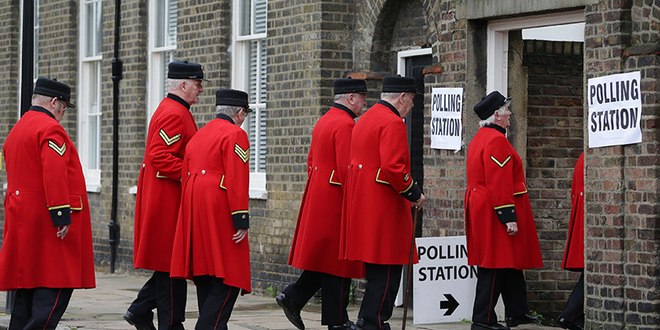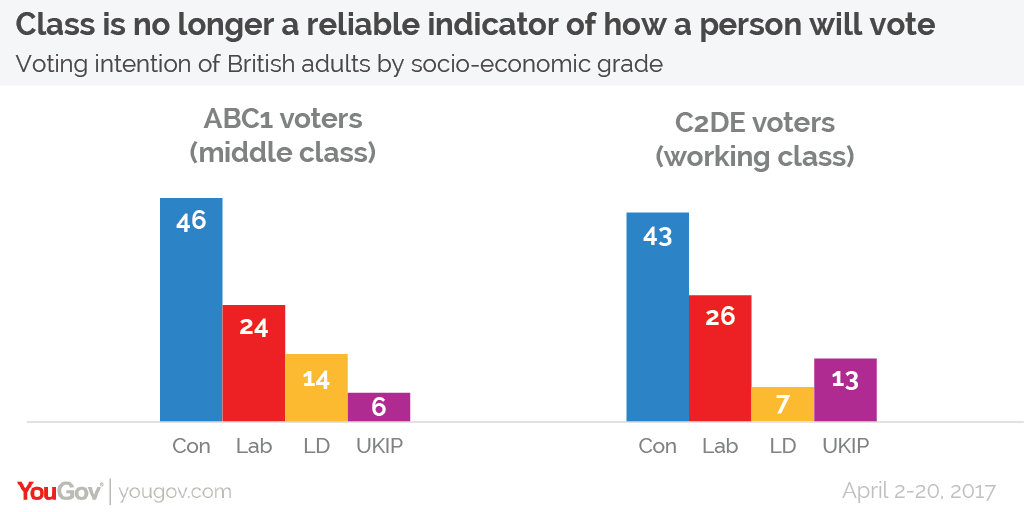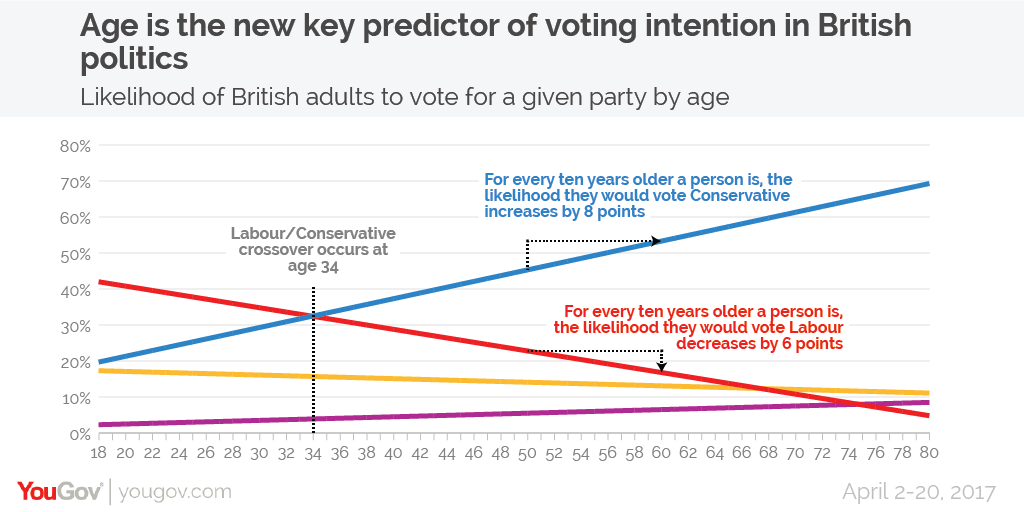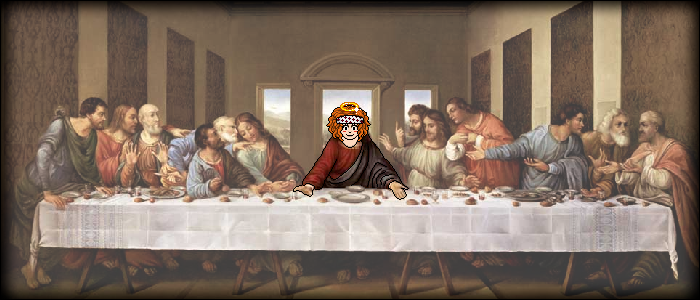https://yougov.co.uk/news/2017/04/25...iding-britain/
The demographics dividing Britain: YouGov
As the campaign starts, YouGov data shows how class, age, gender, education and income will shape the electorate
There's more findings via the link but the main two are class and age which I have quoted below.Originally Posted by YouGov
A really interesting series of polls there.Originally Posted by YouGov
The end of class as a divide in politics is collapsing the Left and not just in Britain - anyone following the French election can see how Marine Le Pen's Front National is basically taking over traditional working class areas as the party to vote for.
Someone remarked how in the last century, with the replacement of the Liberals by Labour, we voted along class lines: working class vs upper class. Prior to that when it was Liberal vs Conservative it was openness/free trade vs tradition/nationalism. It appears that we're reverting back to that old divide: globalism vs nationalism/cities vs rural.
AKA a switch from economics deciding how we vote to our values now being key to how we vote.
The question is, can socialist parties like Labour survive this sea change?
Results 1 to 2 of 2
-
25-04-2017, 02:34 PM #1
- Join Date
- Jan 2006
- Location
- Mijas, the Kingdom of Spain
- Country

- Posts
- 28,677
- Tokens
- 268
- Habbo
- -:overtaker:-
 The demographics dividing Britain: YouGov
The demographics dividing Britain: YouGov
Last edited by -:Undertaker:-; 25-04-2017 at 02:35 PM.
-
25-04-2017, 05:28 PM #2
- Join Date
- Feb 2006
- Posts
- 24,712
- Tokens
- 62,110
- Habbo
- FlyingJesus
















 Reply With Quote
Reply With Quote






